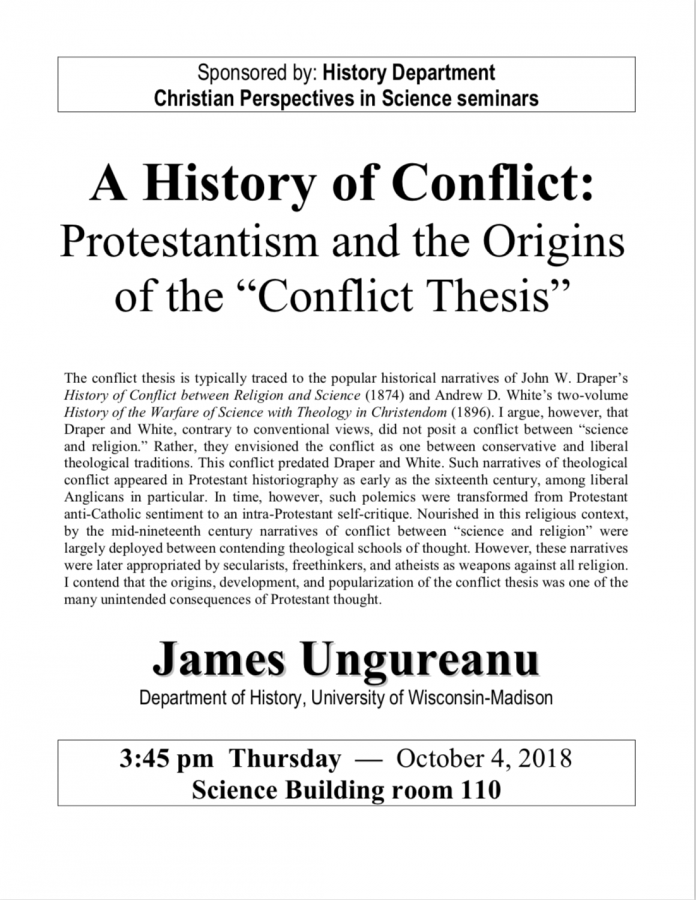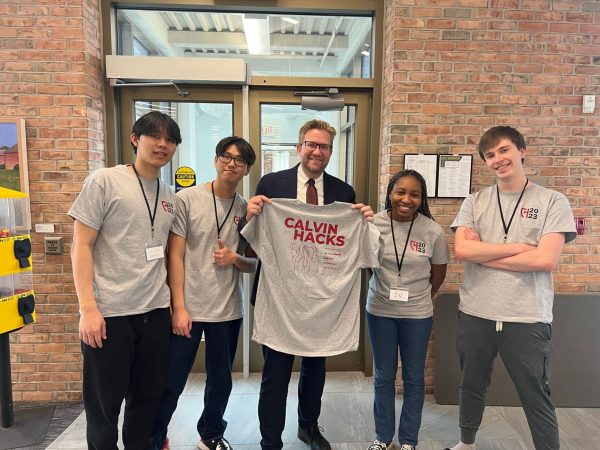Science dept seeks to promote dialogue through Faith and Science Seminar
As a Christian college, Calvin encourages the integration of faith in all fields of study. One way Calvin does this is through the Faith and Science Seminar. The Faith and Science Seminar was instigated in spring of 2001 and since then has gone on to serve as one of the biggest platforms on which ideas and opinions in various fields of science have been discussed. Professor Loren Haarsma, of the physics and astronomy department and the organizer of the Faith and Science Seminar, tells Chimes that there are about four to eight seminars held each semester.
Further, Haarsma explains that about half of these seminars are led by Calvin professors, with the remaining held by other experts usually recommended by faculty and other professors. Next, Haarsma explains that topics being discussed are as a result of a variety of opinions in a particular field or the general controversies surrounding the concept of faith and science. Specifically this year, there have been discussions on human origins (evolution) as well as in neuroscience and its relation to philosophy and faith. On Oct. 4, 2018, Dr. James Ungureanu, a historian of science, gave a talk on the history of development in the late 1800s when books claimed that Christianity and science are fundamentally in conflict.
According to Ungureanu, the ideas in this book dated back to when arguments within the Protestant churches were taken by atheists and used as the same argument against Christianity. In line with these discussions, Haarsma emphasizes the fact that these topics are chosen and discussed primarily to educate and correct some of the misconceptions that exist and to improve the overall understanding of all who attend. Haarsma’s expectation for this seminar includes the ability for speakers to effectively communicate their ideas to the understanding of both experts in the field as well as to students both within and outside the given field of study.
In addition, he hopes that conversations like this will stir up a better understanding of the basic concepts and relationships science shares with faith and expects people to be open to sharing their ideas. Also, Haarsma encourages people to attend the next seminar which will be held on Oct. 26, 2018, in the Science Building in room 110 on the topic “Neuroscience and Philosophy: Subject Integration Theory.”






